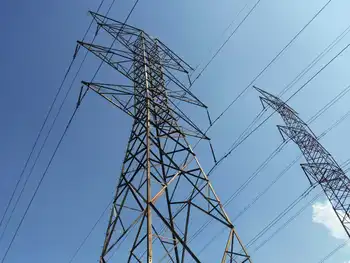UPPCL looking to expand thermal generation
By Industrial Info Resources
Arc Flash Training CSA Z462 - Electrical Safety Essentials
Our customized live online or in‑person group training can be delivered to your staff at your location.

- Live Online
- 6 hours Instructor-led
- Group Training Available
The government of Uttar Pradesh, in its energy policy 2009 statement, has expressed concern that economic development in the state has been hampered by the limited availability of power. The gap between supply and demand of power in the state has been growing and has reached a situation where the annual power consumption per person in the state is only slightly more than half the national figure.
To encourage private participation in the power generation process, the government has decided that independent power producers should be allowed to set up power projects of more than 250 MW each on the basis of a memorandum of understanding.
At the end of November this year, the UPPCL issued a call for expression of interest proposals from "nationally or internationally renowned, experienced, well-established, and reputed companies" that were interested in setting up power generation projects in line with the governmental energy policy.
Among the companies understood to have submitted responses to the call are infrastructure companies Lanco Infratech Limited and Hindustan Construction Company Limited. In total, nearly 20 companies have responded to the call with proposals to set up power plants with a total generating capacity of about 20,000 MW in the state.
The majority of the proposals are concerned with the establishment of coal-based power plants, although a few of the proposals are understood to cover plants generating up to 550 MW of power through alternative power sources, such as gas, biomass, agricultural and industrial waste.
Although Uttar Pradesh has reasonable supplies of coal, with proven reserves of 866 million tons and a further 196 million tons in indicated reserves, it does not compare with states such as Orissa and West Bengal, which have proven coal reserves of 19.9 billion tons and 11.65 billion tons, and indicated further reserves of 31.48 billion tons and 11.6 billion tons, respectively.
In September this year, the UPPCL announced that it intended to build five new thermal power plants with a total power generating capacity of 9,940 MW in the state, including an ultra-mega power project (UMPP) of 4,000 MW in the Chitrakoot district. In addition to the Chitrakoot plant, the UPPCL proposed a 1,980-MW plant at Bargardh in the Farukkhabad district, and three plants with a capacity of 1,320 MW each at Chola in Bulandshahr district, Dorighat in Mau district, and Sabdila in Hardoi district.
Although most of the proposals received declined to specify locations for the plants, a senior UPPCL official said that some of the proposals had suggested the power plants be located at Chitrakoot, Barabanki and Jagdishpur. Following the receipt of the proposals, UPPCL will now examine these and then decide on further action.











